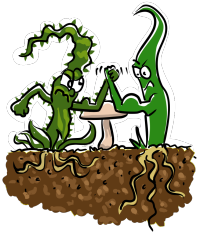












"the qualities of these bacteria, like the heat of the sun, electricity, or the qualities of metals, are part of the storehouse of knowledge of all men. They are manifestations of the laws of nature, free to all men and reserved exclusively to none." SCOTUS, Funk Bros. Seed Co. v. Kale Inoculant Co.




Jami McBride wrote:
I'm not sure I understand your question....Are you looking for a web page, website software or a location on someone else' site to post an article?




Joel Hollingsworth wrote:
My go-to for that sort of task is Wikipedia. Maybe our forum-goers could help spruce up that article (perhaps with a special focus on the intro paragraph and issues of tone in the "History" section), but an encyclopedia seems to be the sort of tone you're going for.














 They might also be saying hey! look here that isn't going to work.
They might also be saying hey! look here that isn't going to work."Study books and observe nature. When the two don't agree, throw out the books" -William A Albrecht
"You cannot reason a man out of a position he has not reasoned himself into." - Benjamin Franklin










|
And now this tiny ad wants to get married
the permaculture bootcamp in winter (plus half-assed holidays)
https://permies.com/t/149839/permaculture-projects/permaculture-bootcamp-winter-assed-holidays
|


